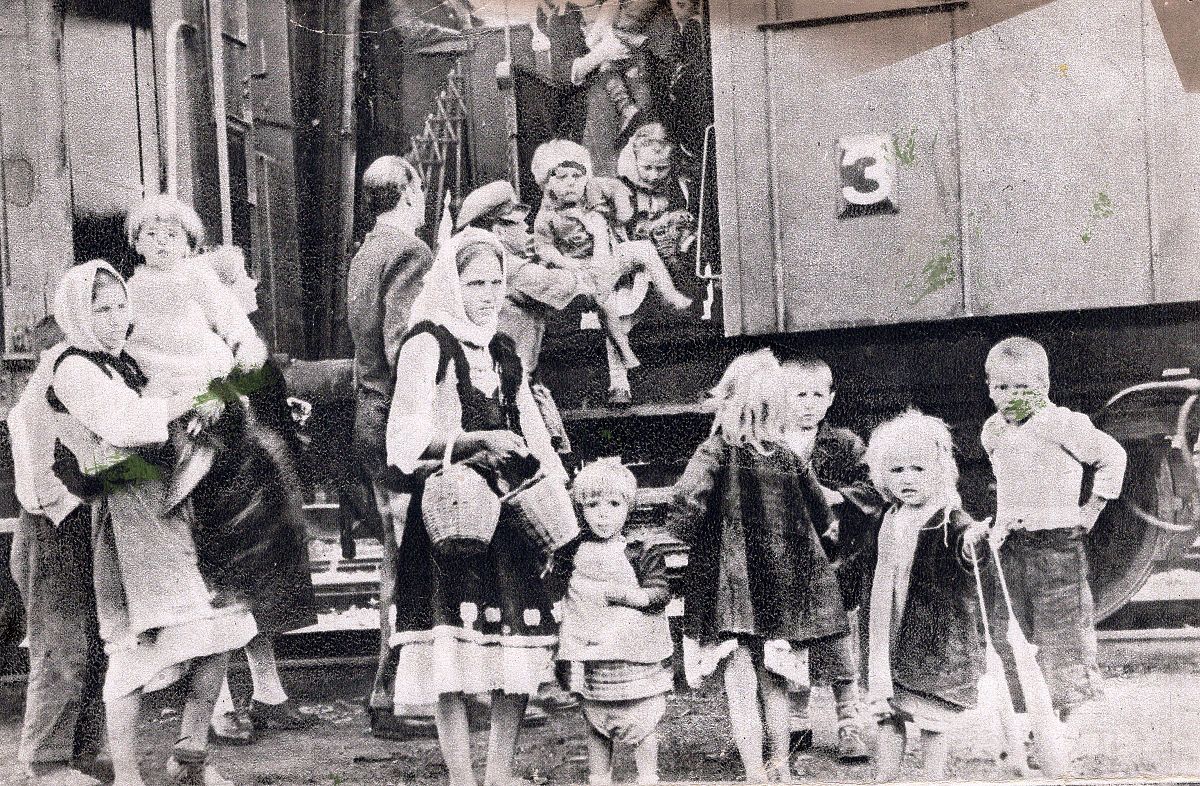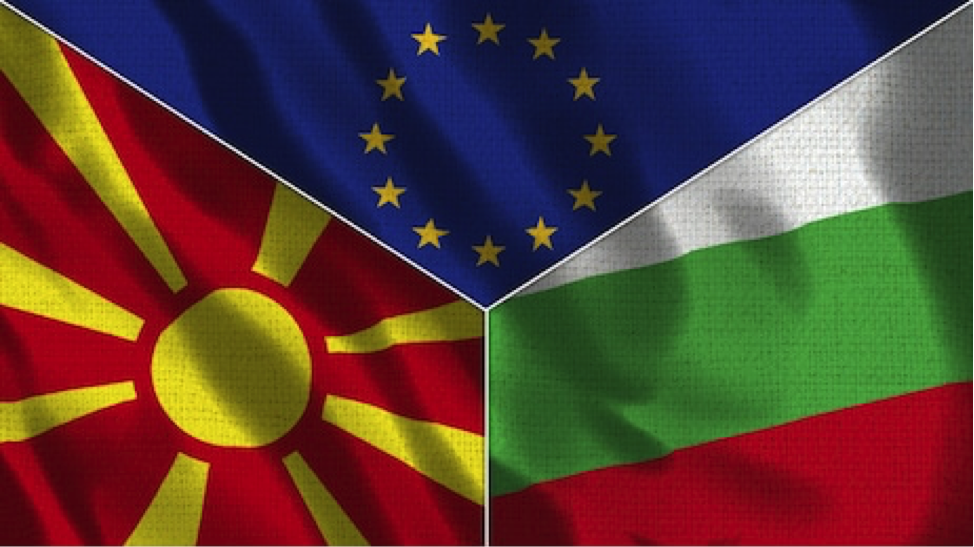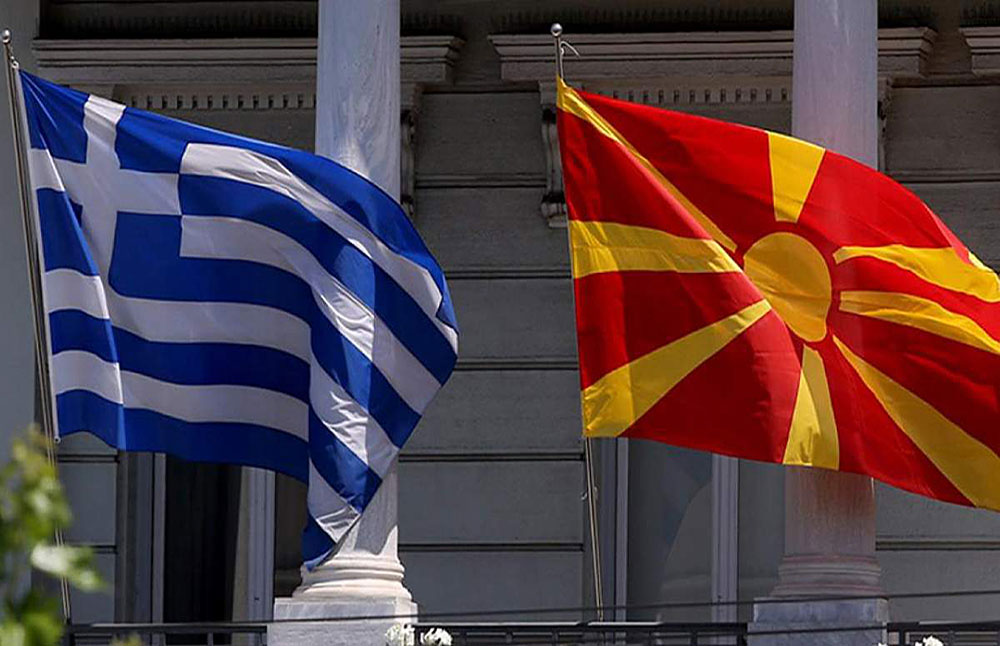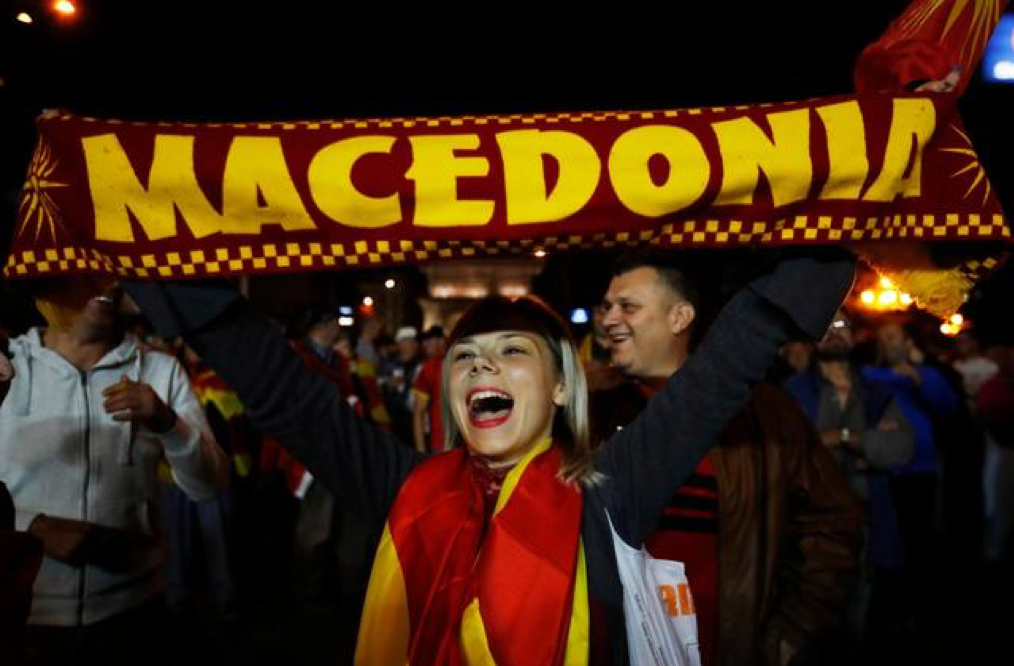Think of any European Union member state; wouldn’t you envision it holding up core European Union values? Well, unfortunately, for the ethnic Macedonian minority population in Greece, it has seen its birthright to basic human rights encroached upon by the government, population, and church of Greece from the early 1900s to this day. This is important because every minority should have their rights respected, and for a European Union member, this should be a non-issue. Self-determination is a right that should be afforded to all peoples and defined as; their right to freely determine their political status, economic, social, and cultural development (UNPO: Self-Determination). Greece denies the Macedonians their basic and fundamental right to self-determination with their oppressive actions and policy of; forced assimilation and discrimination. To understand why the Macedonians in Greece should be given their basic fundamental rights as a minority we will take a look at the denial of the Macedonian identity, discrimination of the Macedonian minority, and the Greek obligations to international laws.
Denial of the Macedonian identity
The official Greek position is that Greece is ethnically homogenous with only a Muslim minority in western Thrace under the 1923 treaty of Lausanne (Whitman). The Greek assertion is to deny the ethnic Macedonian minority’s human rights and continue along their homogenous path; by implementing a strategy of forced assimilation called Hellenization. In other words, the official Greek policy is to claim that those living in the Macedonia region are simply recognized by geography as Macedonian, which does not include a different ethnic and linguistic background.
Hellenizing of the Macedonians in Greece has been detrimental to a unified Macedonian consensus and has destroyed the existence of Macedonian literacy through force and fear. Hellenization started in the late 1800s but began on a more massive scale in 1913 after the first Balkan war and the partition of Macedonia under the treaty of Bucharest. This process of denial of a different ethnicity began with the physical changing of the names of Macedonians and their graves/churches/cities/towns/villages (Ślupkov). Also included as a part of Hellenization was a series of population exchanges with Turkey and Bulgaria in the 1920s that destabilized the ethnic Macedonian majority in their home area and turned it into a minority, while stimulating the Greek national identity in an area that at one time had a limited reach.
With the Metaxas 4th of August fascist regime of 1936-1941, the Macedonian language was banned, and Hellenization only intensified; repression of expression in the Macedonian language was a major focus. Fines, beatings, and imprisonment occurred to anyone who expressed a Macedonian identity or spoke their mother tongue (Ślupkov). Without question, the Greek civil war from 1943-1949 was tragic, as Macedonian families encountered killings, persecution, imprisonment, and exile at the hands of the Greek government army (Greece’s Invisible Minority, BBC).
The Greek civil war was a war fought between the Greek government army and the communist party of Greece (KKE); the Macedonian minority largely fought with and was favorable towards the KKE because the KKE supported the ethnic Macedonian minority as well as their national identity, although some Macedonians found themselves conscripted and/or to protect their families ended up serving in the Greek army. With the Macedonian minority supporting the KKE the repercussions they endured were enormous; torture, beheadings, hangings, villages burned, imprisonment to prisoner of war camps, and thousands of children and fighters exiled, most of whom would end up never seeing their homes and family again (Macedonia, Virtual 1). The island of Makronisos was the main prisoner of war camp; it was run by Greek priests and the Greek government army. In Makronisos prisoners were beaten daily many of whom were arrested and sent to these islands for doing nothing more than being Macedonian (Makronisos Isle of Shame).
The Greek military junta, led by George Papadopoulos, along with fellow middle-ranking Army officers, from 1967-1974 saw many more Macedonian’s imprisoned. In 1982, with Greece’s socialist government, hostilities lowering as they allowed civil war refugees in exile to return, but only those declaring Greek ethnicity (Greece’s Invisible Minority, BBC). In later years, it was the Macedonians themselves–expatriates and ones still living in Greece, who were afraid to express their national identity and speak their mother tongue due to the fear Hellenization instilled and passed down through generations. These actions led to further oppression of the Macedonian identity, still by forced assimilation. This inhuman policy did not allow the Macedonian minority the right to self-determination by any stretch of the imagination; there was no right of the Macedonians to freely determine their political status, go to their own churches, have their own schools. Instead, they were forcibly Hellenised by the Greek state in their pursuit of homogeneity.
Discrimination of the Macedonian minority
Discrimination against the Macedonians in Greece is still happening; their language and culture are still vehemently denied by the Greek government today. The far-right Neo-Nazi fascist party, Golden Dawn, and police forces continue to intimidate locals and will not allow for the freedom of expression and freedom of association. In 2009 American linguist Victor Friedman, while promoting a Greek to Macedonian dictionary (Balkan Insight), was attacked in Athens by Golden Dawn thugs. With the Macedonian language banned, attempts to open up Macedonian language and cultural centres to preserve the language and culture were all but shut down due to being prohibited by law (Ślupkov). The Macedonian political party, Rainbow, which works for the promotion of Macedonian rights in Greece, has had their party headquarters burned, ransacked and their members persecuted (Country Reports on Human Rights Practices For 1995). Macedonian employees have seen discrimination in the private sector and widespread discrimination in the public sector. Macedonians from Greece who have emigrated for a better life have found discrimination at Greek borders trying to return to their ancestral homes, often denied or given hard times because the place of birth on their passport says the Macedonian name of their village, not the new Greek imposed name (Strezovski). Greek priests refuse to baptise Macedonian children if the parents give a Macedonian name for baptism, and the priest will instead give the child an imposed Greek name as the conditions for the baptism (Loring). Macedonian cultural dances and traditional songs are still frowned upon, as police usually come and harass the villagers until they shut it down.
Macedonian Orthodox Churches in Greece have been left in a state of ruin under direction from the Greek Orthodox Church. The Greek Orthodox Church claims legitimacy over the Macedonian Orthodox Church, which is a violation of the Sevres Treaty signed in 1920 by Greece allowing for all Christians in Greece the right to establish their own autonomous church (Macedonia, Virtual 1). Freedom of the press for Macedonians in Greece has also been limited as the government’s official statement is not to allow “propaganda” to spread against Greece. With the repeated discrimination against the Macedonian minority, we can see the stigma it has generated as well as the implications that have arisen over the years. This discrimination has not allowed the Macedonian minority the right to self-determination; there is no right to the Macedonian’s to freely pursue economic, social, and cultural development.
Greek obligations to international laws
With all that the Macedonian minority of Greece has endured, it is alarming to realize this has happened under the watch and by the hands of a European Union member and signatory of the CSCE Helsinki accords, despite specific articles on national minorities in 1990 and 1991. Despite having joined the European Union in 1981, Greece still doesn’t respect the EU’s fundamental values of respect for human dignity, rights, freedom, democracy, equality, and the rule of law. Moreover, Greece’s actions are also in direct opposition to the treaty of Lisbon signed in 2009, which gives universal rights to citizens, such as political, economic, and social rights. Now since the Macedonian minority are Greek citizens, they are afforded rights and privileges of the European Union and therefore should be respected by the Greek government. However, despite all of this, it hasn’t changed anything for the Macedonians, who still are denied their right to self-determination, identity and are instead left with daily discrimination.
It is now abundantly clear how far Greece has gone to try and achieve ethnic homogeneity, and over a century of forced Hellenization shows that they will keep going without waver. As 21st-century citizens, we all ought to recognize how morally wrong the Greek state has been in its position to not allow the Macedonians their fundamental right to self-determination. The forced assimilation and discrimination have led to death, persecution, and a shame that will forever stain the country of Greece for their treatment of the Macedonians.
References
Feature Photo: The State Archives of the Republic of Macedonia (DARM), https://commons.m.wikimedia.org/wiki/File:Deca_begalci_1.jpg
Whitman, Lois. Denying Ethnic Identity. Human Rights Watch, 1994, p. 11.
UNPO: Self-Determination. Unpo.Org, 2017, https://unpo.org/article/4957.
Ślupkov, Ireneusz Adam. The Macedonian National Question In Greece In The Documents Of The Communist Party Of Greece 1918-1940. LULU COM, 2018.
1.Macedonia, Virtual. “Ethnic Macedonians In Greece A Human Tragedy Within The Boundaries Of The European Union”. Virtual Macedonia, 2020, https://vmacedonia.com/history/macedonians-in-greece/ethnic-macedonians-in-greece-a-human-tragedy-within-the-boundaries-of-the-european-union.html.
“Greece’s Invisible Minority”. BBC News, 2020, https://www.bbc.com/news/stories-47258809.
“Chapter I”. Un.Org, 2020, https://www.un.org/en/sections/un-charter/chapter-i/index.html.
2.Macedonia, Virtual. “Denial Of Human Rights For Macedonians In Greece | Virtual Macedonia”. Virtual Macedonia, 2020, https://vmacedonia.com/history/macedonians-in-greece/denial-of-human-rights-for-macedonians-in-greece.html.
MAKRONISOS ISLE OF SHAME”. Greektravel.Com, 2020, https://www.greektravel.com/greekislands/makronisos/.
Country Reports On Human Rights Practices For 1995. U.S. G.P.O., 1996, p. 878.
“Group Storms Greek-Macedonian Dictionary Promotion”. Balkan Insight, 2020, https://balkaninsight.com/2009/06/03/group-storms-greek-macedonian-dictionary-promotion/.
Strezovski, Atanas. “My First Visit To My Birthplace, The Village Neret Near Lerin In Aegean Macedonia”. Pollitecon.Com, 2004, http://www.pollitecon.com/html/life/My_First_Visit_To_My_Birthplace.htm.
Danforth, Loring M. The Macedonian Conflict. Princeton University Press, 1995, pp. 120,121.
Any opinions or views expressed in articles or other pieces appearing in UMD Voice are those of the author alone and are not necessarily those of the United Macedonian Diaspora and its young leaders’ program Generation M; the appearance of any such opinions or views in UMD Voice is not and should not be considered to be an endorsement by or approval of the same by UMD and Generation M.















